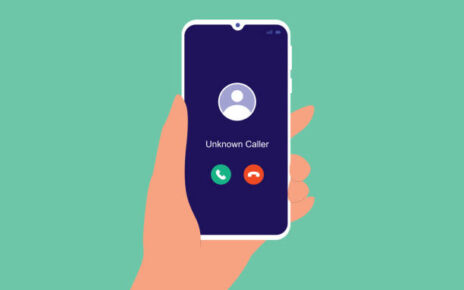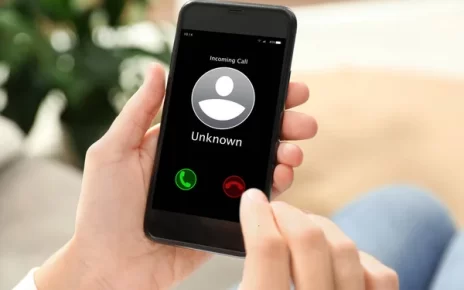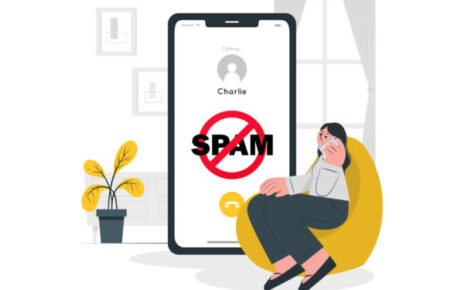Warning: Who Is Calling Me from These Numbers uk 8007613362, 08456021111, 1315614532, 8456021111,07868 802242,0131 561 4532, 7868802242, 8000521251,0800 023 2635, 8004970747, 0800 052 1251, 8000232635, 3001232323,0800 497 0747, 2037810895, 8000338005, 3452962834, 7700161656, +44 800 761 3362, or in the UK?
Introduction
In this modern era, where communication plays a vital role in our lives, receiving unknown calls can be both intriguing and concerning. Many of us have experienced the uncertainty of answering calls from unfamiliar numbers, wondering who might be on the other end of the line. In this article, we will explore the phenomenon of unknown calls and provide insights into how to deal with them. Whether you are in the UK or anywhere else in the world, it’s essential to understand the implications of such calls and how to safeguard yourself from potential scams or nuisances.
What Are Unknown Calls?
Unknown calls refer to incoming phone calls where the caller’s number is either hidden, unfamiliar, or unrecognized by the recipient. They often display as “Unknown,” “Private Number,” or “Blocked” on the caller ID. While some unknown calls might be innocent, others can be potential threats, such as scams or phishing attempts. As such, it’s crucial to approach such calls with caution.
The Growing Concern of Phone Scams
Over the years, the prevalence of phone scams has risen significantly, targeting unsuspecting individuals with various fraudulent schemes. These scams can lead to financial losses and compromise personal information. As technology advances, scammers become more sophisticated, making it increasingly challenging to identify and avoid such deceptive calls.
Identifying Unknown Numbers – Should You Pick Up?
The decision to answer an unknown call can be perplexing. While curiosity may tempt you to pick up, it’s essential to weigh the risks and benefits. If the call is from a potential employer or an important service provider, missing the call could have consequences. On the other hand, answering scam calls can lead to trouble. Therefore, it’s wise to use discernment and consider utilizing alternative methods to verify the caller’s identity.
Decoding the UK Number Formats
In the UK, phone numbers follow specific formats, and understanding them can provide insights into the origin of the call. UK landline numbers typically start with an area code, while mobile numbers begin with “07.” Recognizing these patterns can help determine whether the call is local or potentially suspicious.
Analyzing Common Types of Unknown Calls
- Telemarketing Calls
Telemarketing calls are solicitation calls made by businesses to promote products or services. While they may not always be harmful, they can be intrusive and annoying.
- Robocalls and Automated Messages
Robocalls employ automated systems to deliver pre-recorded messages. These calls often target large numbers of people and may serve as a front for scams.
- One-Ring Scams
One-ring scams involve calling a number and disconnecting after one ring, enticing recipients to call back unknowingly incurring high charges.
- Vishing and Voice Phishing
Vishing refers to voice phishing, where scammers try to trick victims into revealing sensitive information over the phone.
- Wangiri Scam
In the Wangiri scam, the caller lets the phone ring once and hangs up, encouraging the recipient to call back and incur excessive charges.
- Caller ID Spoofing
Scammers can manipulate caller ID information to appear as a legitimate entity, making it challenging to identify their true identity.
- Government Impersonation Scams
In this type of scam, fraudsters impersonate government officials or law enforcement to extort money or information.
- Debt Collection Scams
Scammers pose as debt collectors, pressuring individuals to make payments for debts they may not owe.
- Tech Support Scams
Tech support scammers claim to be from reputable companies and offer assistance with nonexistent computer issues.
- Lottery and Prize Scams
Fraudulent callers inform recipients that they have won a prize or lottery, but to claim it, they need to pay a fee or provide personal information.
Risks of Responding to Unknown Calls
Responding to unknown calls, especially those from scammers, can have severe consequences.
- Financial Scams
Financial scams can lead to monetary losses, with scammers deceiving victims into giving away money.
- Identity Theft
Scammers may use personal information obtained during calls to commit identity theft, leading to various fraudulent activities.
- Unauthorized Subscriptions
Some scammers may trick individuals into subscribing to costly services without their knowledge.
- Malware and Data Breaches
Clicking on suspicious links provided by scammers can result in malware infections or data breaches.
Best Practices for Dealing with Unknown Calls
To protect yourself from potential scams and nuisances, consider the following best practices:
- Enable Caller ID and Call Blocking
Enabling caller ID helps you see the incoming number, allowing you to screen calls effectively. Call blocking can help prevent repeated calls from known spam numbers.
- Do Not Call Registry
Registering your number on the official Do Not Call Registry can reduce the number of telemarketing calls you receive.
- Avoid Answering Unknown Calls
When in doubt, it’s best to let unknown calls go to voicemail. Legitimate callers will often leave a message.
- Use Reverse Phone Lookup Services
Reverse phone lookup services can help identify the owner of an unknown number, providing valuable information about the caller.
- Report and Block Suspicious Numbers
If you receive suspicious calls, report them to relevant authorities or your phone carrier and block the numbers to prevent future calls.
- Be Cautious with Personal Information
Avoid sharing sensitive information over the phone, especially if the caller’s identity is uncertain.
What to Do If You’ve Been Scammed
If you believe you’ve fallen victim to a phone scam, take immediate action to mitigate the damage:
- Contact your bank or credit card company to report unauthorized charges.
- Place a fraud alert on your credit report to prevent further unauthorized activity.
- Change passwords for all your online accounts to prevent unauthorized access.
- Report the scam to local law enforcement or the relevant government agency.
Government Initiatives and Regulations
The UK has established initiatives and regulations to combat phone scams:
- The UK’s Action Fraud
Action Fraud is the UK’s national reporting center for fraud and cybercrime. Victims of phone scams can report incidents through Action Fraud’s website or helpline.
- Telephone Preference Service (TPS)
The TPS allows individuals to opt out of receiving unsolicited marketing calls in the UK.
Protecting Your Privacy and Security
Apart from dealing with unknown calls, safeguarding your privacy and security is essential in the digital age:
- Strong Passwords
Use strong and unique passwords for all your online accounts to prevent unauthorized access.
- Two-Factor Authentication (2FA)
Enable two-factor authentication for added security on platforms that offer this feature.
- Regularly Monitor Your Accounts
Regularly review your financial accounts and transactions to identify any suspicious activity promptly.
Conclusion
Receiving unknown calls can be a perplexing experience, but with awareness and caution, you can protect yourself from potential scams and security breaches. Always prioritize your safety by using best practices to deal with unknown calls and by being mindful of the information you share over the phone.
FAQs
- Are all unknown calls scams?
Not all unknown calls are scams, but it’s essential to approach them with caution and verify the caller’s identity whenever possible.
- Can I block unknown calls on my smartphone?
Yes, most smartphones offer call-blocking features that allow you to block unknown or suspicious numbers.
- Should I report unknown calls to authorities?
If you suspect a call is a scam or fraudulent, report it to the relevant authorities to help prevent further scams.
- How can I check if a phone number is legitimate?
You can use reverse phone lookup services or official directories to verify the legitimacy of a phone number.
- Is it safe to call back an unknown number that left a voicemail?
It’s best to exercise caution and verify the number’s authenticity before calling back, as some scammers may leave false voicemails to trick you.




